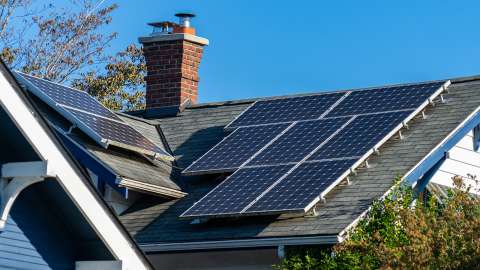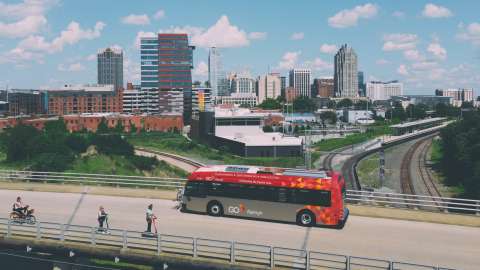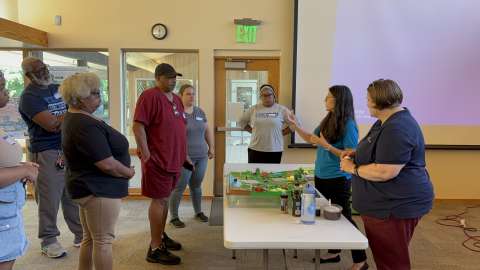Jump To:
This dashboard shows progress on high impact GHG emissions reduction strategies. It includes data on transportation, renewable energy, building efficiency, waste, and more. This information can help the Raleigh community make decisions on projects, investments and everyday actions.
Dashboard Background
In May 2019, Raleigh City Council set a goal to reduce community greenhouse gas (GHG) emissions 80 percent by 2050. The Community Climate Action Plan (CCAP), adopted in 2021, outlines the strategies to meet this goal. CCAP also ensures these strategies address social advancement and community resilience.
Taking action to reduce GHG emissions has benefits that go beyond climate. Making progress on climate strategies also will improve community health, provide cleaner air, improve walkability and housing choice, and create a more social and connected city.
Data for this dashboard comes from City departments, state organizations, and local partners such as the North Carolina Sustainable Energy Association.
Check our 2024 CCAP Implementation Report for more information on progress and community action.
Buildings & Energy
This includes data on solar and other renewable energy installations in Raleigh. It shows data on building efficiency, including programs such as EnergySTAR and LEED. Data on energy efficient housing types like apartments and townhomes are also included.
CCAP Buildings & Energy Data Dashboard

Transportation
This section provides data on how we get around, including walking, biking, transit, and driving. It also charts our transition to electric vehicles and clean fuel technology.
CCAP Transportation Data Dashboard

Resilience, Waste, and Implementation Strategies
This includes an overview of the City of Raleigh's programs to build resilience and sustainably manage waste. The cross-cutting strategies of innovation, education and outreach, and funding for climate action are applied across climate action programs and involve several City departments and community partners.
CCAP Resilience, Waste, and Implementation Strategies Dashboard

City of Raleigh Stormwater staff teach Watershed Learning Network participants about green stormwater infrastructure.
Taking action to reduce GHG emissions has benefits that go beyond climate. Making progress on climate metrics also will improve community health, provide cleaner air, improve walkability and housing choice, and create a more social and connected city.
To learn more about taking climate action in Raleigh, check out our 2024 CCAP Implementation Report.
